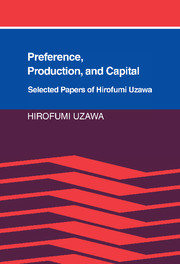Book contents
12 - On the stability of Edgeworth's barter process
Published online by Cambridge University Press: 04 May 2010
Summary
Introduction
In his discussion on the Marshallian theory of barter, Edgeworth had a precise formulation of barter process for the simple two-good economy. The process of barter dealt with by Marshall and Edgeworth consisted of successive bartering between individuals until the position was reached at which no barter was possible for each individual to become better off. Edgeworth graphically showed that the equilibrium reached by the process depended upon the path of bartering as well as the amount of goods initially held by each individual. The process of barter, therefore, constitutes a strong contrast to Walras's tâtonnement process. Walras's process is a provisional market process by which competitive equilibria are attained, and the equilibrium reached by it is determined solely by the initial holdings, independently of the path of the process. (It is customary in economic literature to say that a market process is determinate if the equilibrium reached by that process is determined only by the initial holdings.) However, the markets, of which the tâtonnement process represents the working of exchange, are restricted to those in which either Edgeworth's recontracting is permitted or Walras's device of bons is introduced.
In a recent work, Hurwicz has attempted to formulate the process of barter in a more general model, and various optimality criteria have been discussed. However, the problem of whether or not the process of barter thus formulated actually reaches (or asymptotically approaches) equilibrium states has not been handled.
- Type
- Chapter
- Information
- Preference, Production and CapitalSelected Papers of Hirofumi Uzawa, pp. 179 - 194Publisher: Cambridge University PressPrint publication year: 1989



